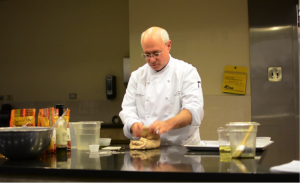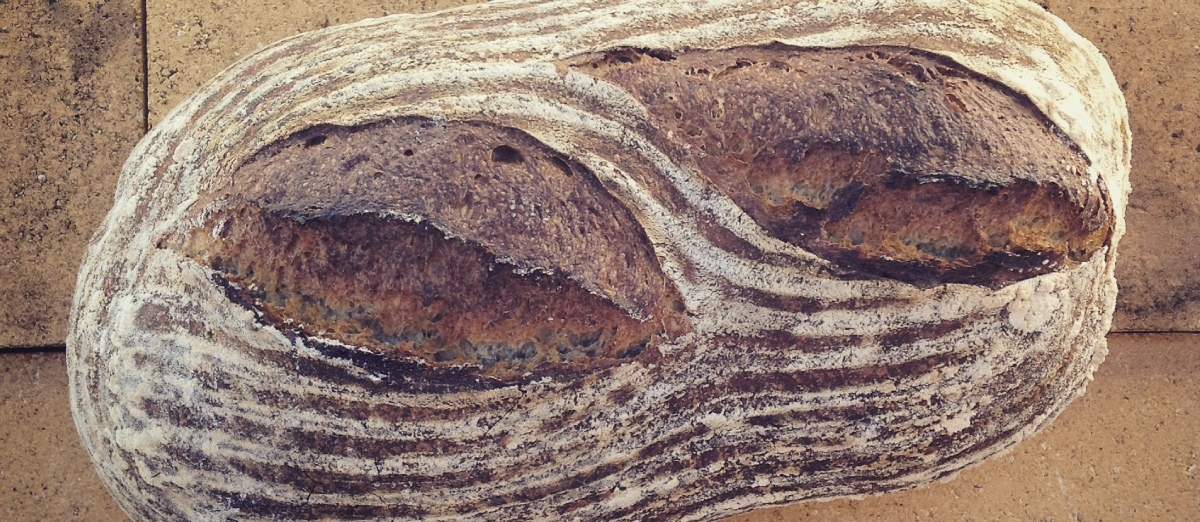Sprouted Flour Has Big Impact on Consumer and Commercial Baking
The popularity of sprouted grains and flours has seen a big boost over the last couple of years, so much so that The Washington Post is citing “sprouted everything” as one of the biggest food trends for 2017. It’s likely you’ve heard by now that sprouted grains are better for you than traditional grains and in case you’ve forgotten why exactly this is the case, here’s a little recap.
Sprouted grain vs. traditional grain
Grains are seeds. Un-sprouted seeds hold the nutrients, vitamins and minerals in a dormant state. The germ portion of the seed contains all the genetic information to turn that seed into a full-grown plant, as well as the enzymes necessary for sprouting. When the grain cell germinates, or sprouts, that genetic information ignites, and the resulting amylase activity, or enzymatic action, ultimately results in plant growth made of simple sugars more easily digestible in the body vs. complex carbohydrates.
No Need to Knead
 The same enzymatic process the grain goes through in the sprouting process that unlocks nutrients and makes the sprouted version more nutritional for our bodies, also reduces the amount of time required to knead the dough when baking. Acclaimed Chef Peter Reinhart uses Healthy Flour sprouted flour products often in his baking workshops and does a wonderful job explaining the reasons behind the “no need to knead” concept in baking with sprouted flour. Once such presentation can be found here from the 2014 Whole Grains Council meeting in Boston, MA: http://bit.ly/2itm1YH.
The same enzymatic process the grain goes through in the sprouting process that unlocks nutrients and makes the sprouted version more nutritional for our bodies, also reduces the amount of time required to knead the dough when baking. Acclaimed Chef Peter Reinhart uses Healthy Flour sprouted flour products often in his baking workshops and does a wonderful job explaining the reasons behind the “no need to knead” concept in baking with sprouted flour. Once such presentation can be found here from the 2014 Whole Grains Council meeting in Boston, MA: http://bit.ly/2itm1YH.
One important thing Reinhart discovered in working with sprouted flour is that the full flavor of the wheat will come out with very little fermentation. The impact of reduced fermentation time in large commercial settings could have tremendous impact in the way of increased productivity and savings. A short fermentation process and ability to achieve full flavor without having to incorporate pre-ferments or use overnight fermentation to “unlock” flavor means more product can be produced and less time and less materials and personnel spent in preparation.
Flavor is Everything
The reason for the reduced fermentation time, in short, is because the sprouting process pre-conditions the grain in a way that doesn’t damage the gluten or starches. When combined with water and minimal ingredients, dough made with sprouted flour is ready to bake with and requires minimal mixing or kneading. Kneading the dough creates oxidation which ultimately reduces the flavor in the bread. When baking with sprouted flour, less is more when it comes to kneading. The less time spent kneading the dough, the less oxidation occurs and flavor is improved.
Reinhart also points out the limited number of times required to stretch and fold dough made from sprouted flour to achieve optimal texture. With sprouted grains, the gluten binds to the water more quickly and the dough smooths out at a faster rate. When baking hearth breads, the goal is less structure in the dough to create bigger holes and hence the artisan look of the bread. These time-saving properties coupled with the nutritional benefits of sprouted grains and flour beg the question “Who wouldn’t make the switch to sprouted?”, for both consumer and commercial baker alike.

 334-584-7875
334-584-7875

